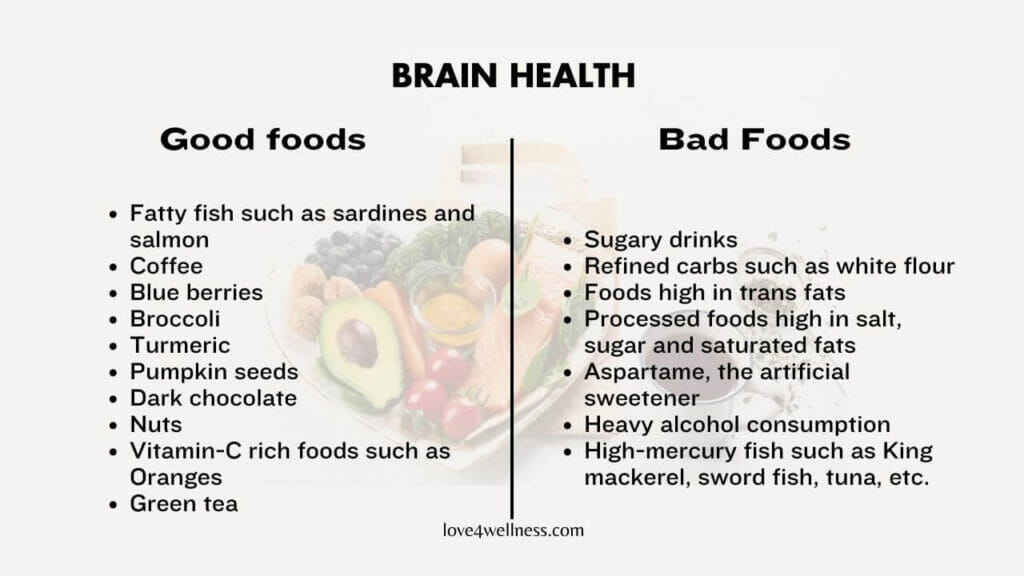Do you ever find yourself struggling to remember important information, like a person’s name or a crucial detail from a conversation? Perhaps you want to try some memory exercises or techniques to see if there is an improvement, but not sure how to go about it. Don’t worry. We have got you covered. In this article, we’ll explore ten scientifically-backed strategies that can help boost your memory and make it easier to retain and recall information. Whether you’re a student looking to ace your exams, a professional seeking to improve your performance or just someone who wants to remember more of the world around you, these tips are sure to be useful. So, let’s dive in and explore the top 10 ways to improve your memory!
When does memory reach its peak?
Memory peaks during early adulthood, typically around the age of 20. At this age, the brain is fully developed and reaches the maximum memory retention and recall capacity.
While some types of memory, such as semantic memory, continue to improve, others may remain constant or slowly decline due to various factors. The good news is with the right techniques and lifestyle changes, you can enhance memory and keep your brain sharp well into old age.
Why does memory function decline?
Memory function can decline due to various factors, including natural ageing, lifestyle choices, and certain medical conditions. Some of the major reasons are as follows:
- Ageing: As people age, their brain’s ability to form and retain new memories gradually declines, and retrieving existing memories becomes more challenging.
- Lifestyle Choices: Poor diet, lack of exercise, chronic stress, and sleep deprivation can cause memory decline.
- Medical Conditions: Alzheimer’s disease, dementia, and brain injuries can cause significant memory impairment.
- Medication Side Effects: Certain medications such as Benzodiazepines can interfere with memory function and cause forgetfulness or confusion.
- Substance Abuse: Long-term alcohol or drug abuse can cause brain damage and significant memory impairment.
- Hormonal Changes: Hormonal fluctuations, particularly in women during menopause, can affect memory function.
- Infections: Bacteria, viruses, or fungi infections may cause temporary memory loss, particularly in older people. In the more recent 2019 covid pandemic, many studies have evaluated long covid symptoms and affirmed that severe covid leads to noticeable cognitive decline and memory loss.
Ten effective tips to improve memory
Memory is crucial to our very existence. Not the complex physics theories of your class, but to even chew your food, you need memory. From the simplest tasks to the most arduous of endeavours, the significance of memory cannot be overstated.
Fortunately, there are several ways to improve memory retention and recall. From simple lifestyle changes to specific memory techniques, these proven methods can help you enhance your memory and take your mental game to the next level. Here are ten effective tips to improve memory.
1. Get enough sleep
Sleep is essential for consolidating memories, so aim for 7-8 hours of quality sleep every night. Research suggests that during sleep, the brain processes and stores information, which helps to improve memory retention and recall.
Your brain works on pieces of information several times to make short-term memory into long-term memory. This is called memory consolidation and is important for retrieving information.
2. Exercise regularly
Exercise can benefit the brain in numerous ways, including enhancing cognitive function and memory. In addition, regular exercise promotes the growth of new brain cells, improves blood flow to the brain, and helps to reduce stress and inflammation – all of which are essential for optimal memory function.
3. Eat right
Eating a heart-healthy diet, which is low in saturated fats, reduces your risk of diabetes, hypertension, and obesity, all of which contribute to poor memory.
Further, a study published in the journal Neurology finds that eating a balanced diet reduces the risk of cognitive decline. The researchers defined a healthy diet as one containing lots of fruits and vegetables, nuts, fatty fish, moderate alcohol, and minimal red meat.
In addition, foods rich in antioxidants and omega-3 fatty acids, such as salmon, walnuts, and blueberries, have been linked to better cognitive function and memory retention.
4. Reduce stress
With chronic stress, you may lose grey matter, particularly in the prefrontal cortex, the region associated with various executive functions of the brain, including working memory. So finding ways to manage stress effectively is essential.
Techniques such as meditation, deep breathing, and yoga can wonderfully help to reduce stress levels and increase memory function. Also, a positive outlook enhances your mental well-being, so practising positivity is good for memory.
5. Practice mindfulness
Mindfulness is the practice of being fully present and aware of one’s surroundings. It has been linked to improved memory function, as it helps to increase attention and focus, which are essential for effective memory retention and recall.
6. Use mnemonic devices
A mnemonic device, or memory device, is any learning technique that helps to associate information with easy-to-remember cues, such as acronyms, rhymes, or visualisation. Using mnemonic devices is an effective way to improve memory retention and recall by making information more memorable.
A few popular mnemonic techniques are Method of loci, Chunking, Acronyms, Rhyming mnemonics, and Music mnemonics. Choosing a device, familiarising yourself with it, and practising regularly allow you to use mnemonic devices effectively to improve memory.
7. Say things aloud
This technique, called Production Effect, is particularly useful for students and people with severe cognitive decline, such as Alzheimer’s. Repeating information aloud helps improve memory retention and recall as it can solidify memories and make them easier to remember later. You may experience the same benefit with writing things you want to remember well.
8. Engage in mental stimulation
Mental stimulation with activities such as reading, solving puzzles, or learning a new skill, helps improve memory function by promoting the growth of new brain cells and strengthening neural connections.
Solve a sudoku every day, make a journal at the end of the day, and learn a new skill like a foreign language or a musical instrument. These activities may require an hour or two of your day but are worth the time if you really want to sharpen your brain power.
9. Get organised and limit distractions
“Tidy up your room” is presumably your most-hated phrase as a child. Your mother probably didn’t know it’ll boost your brain power, but she always asked you to be organised!
To be clutter-free and void of distractions is important to be focused and work with concentration. Be it an unorganised workspace or a TV or music player blaring nearby, your productivity won’t be optimal.
Studies suggest staying organised help support better brain health and improve memory. So keep a clean and organised living and working space to reduce stress and improve memory function. Also, working without distractions ensures remembering things better.
10. Chant mantras
A mantra can be a single syllable or a group of words that is said over and over again. Some chant mantras to help meditate, while others do it for the calm it provides. Mantra chanting offers several benefits, including reduced stress and anxiety, improved focus and concentration, and improved memory.
Some studies have studied the positive effects of mantra chanting on brain power, and it is promising. There are plenty of mantras available online. You can choose some you like and chant every day before bedtime.
Final Word
Memory is essential to our daily lives, and improving it can bring significant benefits. Maintaining a healthy lifestyle, engaging in regular physical and mental exercise, practising memory techniques, prioritising sleep, managing stress, and maintaining a positive attitude are strategies that can greatly improve your memory and overall quality of life.
Also, don’t forget to be patient and persistent, as memory improvement is a gradual process that requires consistent effort and dedication. Improved memory retention and recall can lead to better academic and professional performance, increased creativity, and better decision-making skills. So, make these practices a part of your daily routine and take your mental game to the next level.
Images: canva.com



